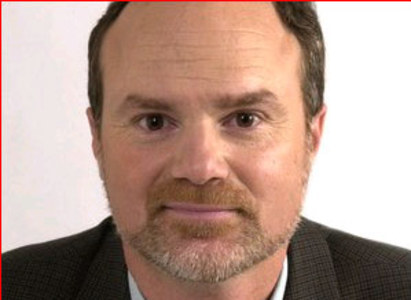Before commenting on Michael Sabia's appearance before a Quebec National Assembly committee Monday, one must set the record straight. Nobody, during his four hours of testimony, said or hinted that Mr. Sabia is not qualified to head the Caisse de dépôt et placement du Québec because he is not a "vrai Québécois."
One MNA, Jean-Martin Aussant, recalled that Mr. Sabia, as chief executive officer of BCE Inc., had orchestrated a deal to sell the telecom giant to the Ontario Teachers' Pension Plan (which eventually fell through). "Maybe someone who tries to sell a Quebec jewel to Toronto does not have the same understanding of Quebec's interests as most people," Mr. Aussant said.
That's all. It is to these words that the new Caisse CEO replied by emotionally underlining his Quebec roots - his grandfather arrived in Montreal a century ago - his understanding of Quebec society and his commitment to the pension fund manager.
It is true that when Mr. Sabia's nomination was announced, not a few Quebeckers - including this writer - reacted with dismay. What, an anglophone from Ontario to head Quebec's most important financial institution? Are there not Quebec francophones competent enough?
[ That kind of reaction may puzzle many in other parts of the country->19616]. However narrow it may seem, it is certainly understandable, if not excusable. The Caisse was established in 1965. At the time, few francophone Quebeckers were involved in big business. There were many reasons for that unfortunate situation, one being that the Canadian business elite had it in its mind that a French speaker could simply not be qualified to manage a company. Canadian National chairman Donald Gordon said so much in 1962.
Of course, this was half a century ago and francophone Quebeckers are now as successful in business and finance as other Canadians. As a matter of fact, two weeks ago, the CN board chose as its CEO a man named ... Claude Mongeau.
Because the Caisse is considered to be largely responsible for that positive evolution, it remains a powerful symbol in the eyes of many Quebeckers. The initial reaction to Mr. Sabia's nomination can be likened to the unease felt by some in English Canada when U.S.-born Robert Milton was chosen to manage the once-iconic Air Canada. The good news is that in both cases, most politicians and commentators rapidly overcame that initial reflex.
Controversy over the Charest government's choice then concentrated on legitimate issues such as due process, Mr. Sabia's knowledge of the complex investment world and his performance at BCE.
There were also many who worried about his knowledge of French. The Caisse's CEO manages a team of francophone employees and has to interact often with francophone politicians and business people. Could Mr. Sabia efficiently communicate his views to them and to the public? His first press conference did little to alleviate that concern.
Fortunately, the issue was resolved Monday. Mr. Sabia already had a good but theoretical knowledge of the French language. He just needed practice, which he obviously is getting a lot of these days.
The fact that he survived the grilling by Opposition finance critic François Legault, a seasoned politician and an accountant at that, won the new CEO the respect of many. After barely seven weeks on the job, Mr. Sabia demonstrated a good understanding of the Caisse's role and problems. He expressed a clear vision of where he wants to take it. He has started implementing his plan by restructuring the institution so that "managing risk is not just one person's job but everyone's job." Reassuring words indeed.
Now that Mr. Sabia has cleared that first hurdle, he can concentrate on the extremely difficult job of changing the Caisse's culture to align it with the demands of today's turbulent financial world. How he manages that tour de force - and nothing else - will determine the judgment Quebeckers pass on his five-year term.
***
André Pratte is chief editorial writer at La Presse.
Michael Sabia, le Québécois
L'affaire de la CDP - quel mandat? Québec inc.?

André Pratte878 articles
[une chronique intitulée « Tout est pourri » (critique de Anne-Marie Gingras) ->http://books.google.fr/books?id=EZWguAMXAtsC&pg=PA27-IA27&lpg=PA27-IA27&dq=pratte+Tout+est+pourri&source=bl&ots=MUti9NTQuH&sig=h2zgJlLgOg844j5ejxnUl4zH2_s&hl=fr&sa=X&ei=73RrT8a...
Cliquer ici pour plus d'information
[une chronique intitulée « Tout est pourri » (critique de Anne-Marie Gingras) ->http://books.google.fr/books?id=EZWguAMXAtsC&pg=PA27-IA27&lpg=PA27-IA27&dq=pratte+Tout+est+pourri&source=bl&ots=MUti9NTQuH&sig=h2zgJlLgOg844j5ejxnUl4zH2_s&hl=fr&sa=X&ei=73RrT8aQEqnh0QHuh4GyBg&ved=0CEEQ6AEwBQ#v=onepage&q=pratte%20Tout%20est%20pourri&f=false]
[Semaine après semaine, ce petit monsieur nous convie à la petitesse->http://www.pierrefalardeau.com/index.php?option=com_content&task=view&id=30&Itemid=2]. Notre statut de minoritaires braillards, il le célèbre, en fait la promotion, le porte comme un étendard avec des trémolos orwelliens : « La dépendance, c’est l’indépendance ». « La soumission, c’est la liberté ». « La provincialisation, c’est la vraie souveraineté ». « La petitesse, c’est la grandeur ». Pour lui, un demi-strapontin à l’Unesco est une immense victoire pour notre peuple. C’est la seule politique étrangère qu’il arrive à imaginer pour le peuple québécois. Mais cet intellectuel colonisé type n’est pas seul. Power Corp. et Radio-Cadenas en engagent à la poche.






















Laissez un commentaire Votre adresse courriel ne sera pas publiée.
Veuillez vous connecter afin de laisser un commentaire.
Aucun commentaire trouvé